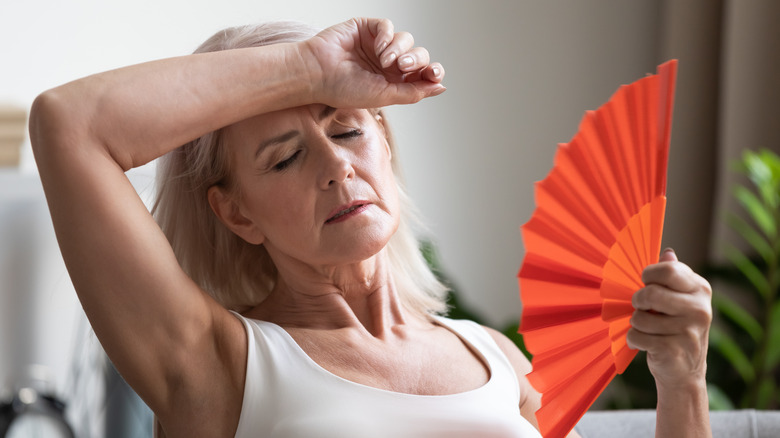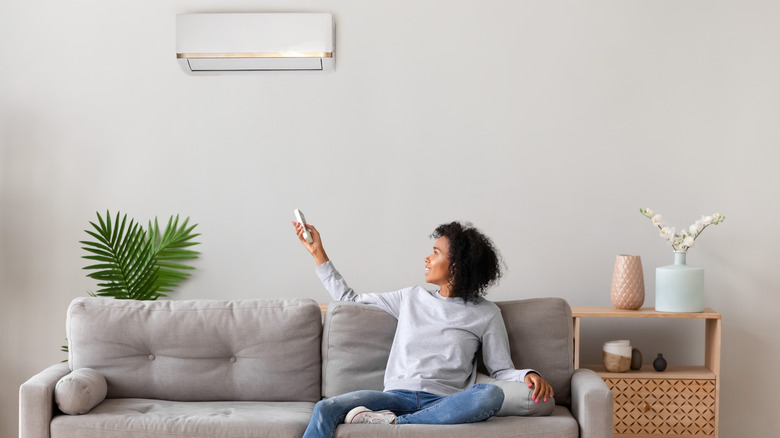Surprising Side Effects Of Living Without Air Conditioning
During the summertime, air conditioning is no doubt a necessity, right alongside flip flops and sunscreen. Not only does air conditioning ward off discomfort from hot and humid temperatures, but by keeping our homes properly cooled, our A/C also preserves our cognitive functioning and prevents our brains from being negatively affected by the sweltering heat.
A study conducted by researchers at Harvard University found that hotter temperatures can affect multiple areas of the brain's functioning, including memory, reaction time, and mental performance (via NPR). University students were issued two cognitive tests a day for a total of twelve days during a midsummer heat wave. The test subject matter ranged from basic arithmetic, to memory exercises, to speed. It was found that those who resided in dorm rooms kept at a cool 71 degrees outperformed those who were left with no central air, where temperatures climbed as high as 80 degrees throughout the course of the day.
Joe Allen, co-director of the Center for Climate, Health and the Global Environment at Harvard University, elaborated on these findings, stating, "We found that the students who were in the non-air-conditioned buildings actually had slower reaction times: 13 percent lower performance on basic arithmetic tests, and nearly a 10 percent reduction in the number of correct responses per minute."
Slowed brain functioning and heat stroke are two possible risks of living without A/C
But slowed brain functioning is not the only risk associated with heat. Medical professionals at the Mayo Clinic stress that heat stroke can also result from lack of adequate air conditioning. Heat stroke is a dangerous condition that should be given immediate medical attention, and health officials urge individuals to be aware of possible indicators. Symptoms include but are not limited to increased body temperature, confusion, headache, flushed skin, quickened heartbeat, and vomiting. Utilizing a functioning A/C system on particularly hot days is one of the best methods for staying cool and preventing health complications.
Specialists at the Brain & Spine Foundation emphasize that some populations can be more susceptible to heat risks, such as the elderly or those with neurological disorders. Should you find yourself without air conditioning, experts suggest some alternative methods to keep yourself safe and cool, such as taking a cold shower, turning on an electric fan, staying hydrated by consuming water either through drink or food items like salads, keeping blinds and curtains shut, and avoiding strenuous activity during the hottest hours of the day, generally from 11 a.m. to 3 p.m. In doing so, you can stay cool, comfortable, and healthy.


